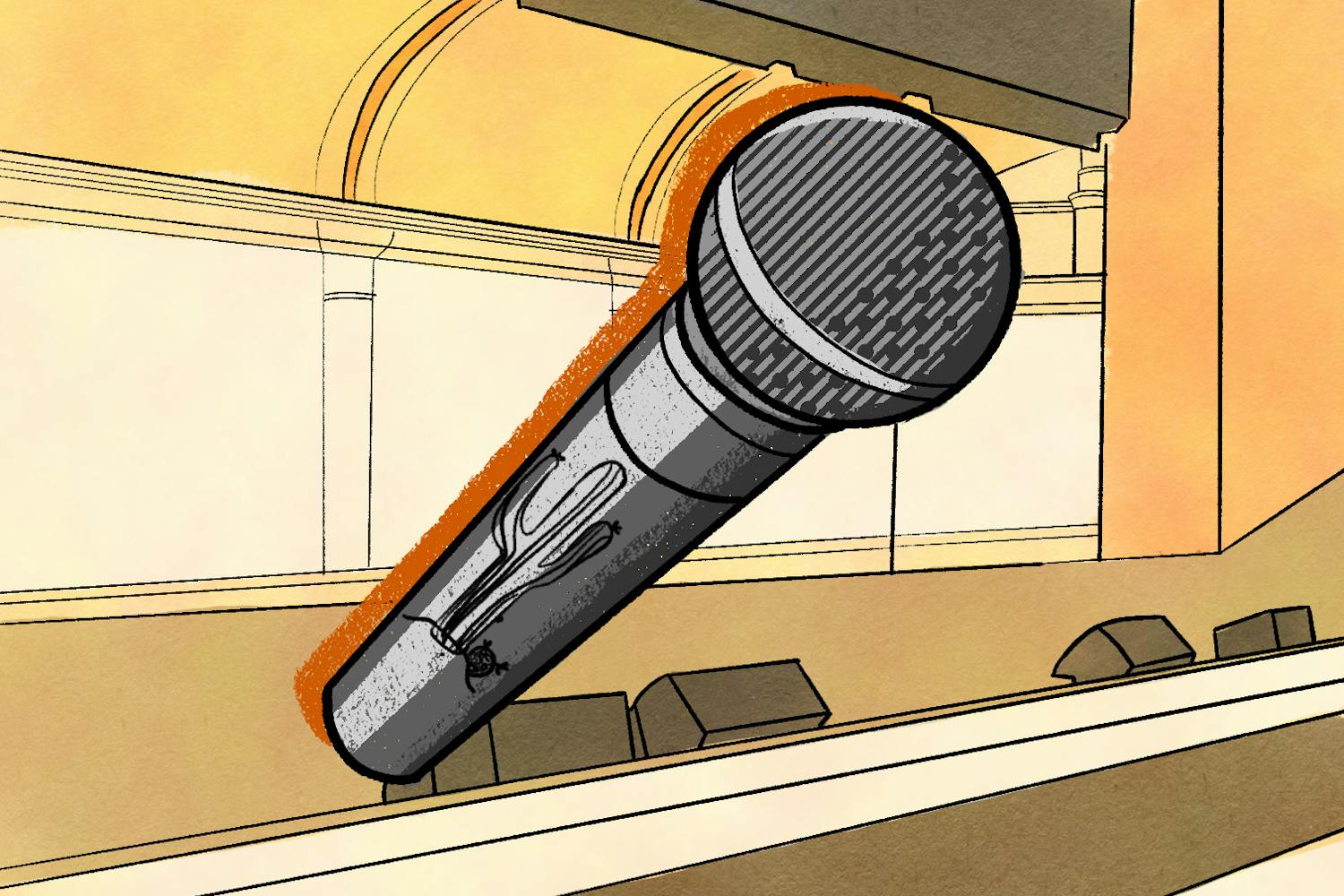Wouldn’t it be nice to have a blueprint for life’s convoluted moments? That’s the objective of author and life coach Dan Millman in his newly released book, “The Four Purposes of Life.” The State Press spoke with Millman about his text and the teachings within.
The State Press: “The Four Purposes of Life” incorporates many of the teachings you instill through several of your other books. Why did you choose to embolden and expand upon your prior teachings?
Dan Millman: My new book does distill some key elements from several earlier books. But these elements comprise a relatively small portion of the new book. And these elements are placed, for the first time, in their proper context in order to provide clarity where there was confusion and structure in a changing, and sometimes chaotic world.
SP: You mention that people frequently create their own adversity and then harbor on those mistakes instead of understanding life’s lesson and learning from them. Discussed briefly in this book, and in-depth in “Everyday Enlightenment,” you attribute self-sabotage as a side-effect of low self-worth. How does an individual’s self-worth affect how he or she will smarten up, grow up and wake up?
DM: Yes — in “The Four Purposes of Life” I distill 12 arenas of life as required courses in the school of life. When college students graduate from their academic institution, one facet of their education is complete, and another kind of education begins — an experiential schooling that develops strength, patience, wisdom, perspective and compassion.
SP: While attending a university, students frequently create an opportunity to perpetuate their own fundamental expansion through numerous programs that promote service to others. How do you propose an individual continues humanitarian exertion after he or she graduates and these easily accessible resources are no longer available?
DM: The college years have their challenges, to be sure; yet those years also provide clearly defined goals and also maximum flex-time. College graduates turn to new challenges [of] prioritizing their time and energy, finding a career and maybe even following a calling as well as cultivating relationships. Some grads enter the world of service by interning with or finding positions with NGOs or non-profit service organizations dealing with the environment, building homes, and so forth. But there are other ways to connect with people in the spirit of service. Little things we can do any and every day, even as we look for work, seek companionship, get married and raise children, and find our career and calling — a kind word to the clerk at the market, picking up some litter from the street, or finding ways to be helpful to those in our immediate environment.
SP: College is deemed to be a time of personal and occupational exploration. In “The Four Purposes of Life” you discuss the positives of juxtaposing one’s calling and career. Do you recommend students pursue distinguishing a calling within their chosen career field, or work on creating their calling into a career?
DM: The Trying 20, when we try this and then try that, are an important phase in life as college graduates get to know themselves as they are — to discover what they want to do rather than what they thought they should do. Most of us experience what we don't want before we discover what we do want; finding work that matches our emerging talents, interests and values. For some, career and calling may merge, but most often these remain separate.
SP: What advice do you have for students currently undertaking either of these tasks?
DM: Within the context of a healthy discipline, be patient and compassionate with yourself. Continue to explore your interests and values as you get better acquainted with yourself in the real world. If you decide to go to graduate school, do it because you are called to a particular profession, not just to postpone your confrontation with the real world. Otherwise, spend a year doing service abroad, or get some work experience to learn more about yourself and your goals.
If you are looking for work, especially in today's market, find whatever you can [and] handle what's in front of you, but stay open to opportunities that may arise. Continue to inquire of yourself, because this is an appropriate time for self-inquiry and exploration. There is no best career — only the best one for you at a certain point in your life. Strive to find a way to make sufficient money, but also doing work you find suitable or meaningful, while providing a practical service.
And finally, learn to live with uncertainty for a while. Follow your nose; go with your instincts and interests. Few of us figure out our vocations; much of the time, the fates steer us, stumbling, into our eventual life's work. Handle what's in front of you, do what you can, sow the seeds [and] then trust the process.
SP: You mention that frequently people are influenced to embrace a career demonstrating what they could or should do, instead of what they enjoy doing. What are the repercussions to making such choices to please others, instead of aspiring to pursue a personally rewarding occupation?
DM: I once asked my father, who came of age during the Great Depression, if his work made him happy. He looked puzzled, and said, “It never occurred to me.” Back then, men and women did whatever they could to build a stable foundation for family. Today, quite appropriately, we seek work that fits our values and interests, at least in terms of a longtime career. I gave my own daughters some idealistic advice that still holds true: “Do what you love and get someone to pay you for it.” The most practical approach is to get whatever work is available, and do it as well as you can, and build from there. You don't have to, and most likely won't, have your life and career mapped out anytime in your 20s.
SP: In the "third purpose" you describe a system you call a life path reading. What teaching is this technique derived from, and how is it different from numerology or astrology?
DM: The system I distill from my larger book, “The Life You Were Born to Live” as “the third purpose” is indeed quite accurate, if mysterious. After working with this system for nearly three decades, I still cannot offer a scientific or rational model of why it works; I only know that it is the most useful and accessible tool I've found to amplify someone's insight and self-knowledge, and to offer practical guidance
SP: How can people utilize the life path reading positively in their lives?
DM: Different people will use the information in different ways and to different degrees; [it] depends upon each person's interests.
SP: You present Bertrand Russell and Adolph Hitler sharing the same life path. How can two radically different people have similar challenges, and thus opportunities for personal growth, presented in their life path reading but influence the world in vastly different fashions?
DM: Millions of people on the planet each share one of 43 different life paths, but each person, given their own life experience, genetic heritage, and other variables, will express that path in their own way. The key difference that makes some lives look so different, even for those on the same path, is that one is expressing the issues and qualities of that path in positive, constructive ways, such as did Bertrand Russell, and another may take the same innate talents and drives and express them in manipulative, destructive ways, as did Adolph Hitler. Why does one computer whiz create a new App or software program, and another create computer worms or viruses?
SP: In “Way of the Peaceful Warrior” you discuss that “there are no ordinary moments.” In this book you give guidelines to understand this philosophy. How can people utilize the here and now to solve chosen fixation on past or future dilemmas?
DM: The past and future can be nice places to visit, but we don't want to live there. Most of our so-called problems involve reflections on past regrets or anxieties about the future, when the only reality we truly have any control over is now — this moment, and then the next. There is nothing wrong with using our imagination to envision and plan our day as long as we recognize that all plans are tentative. And [there is] nothing wrong with reflecting on or learning from something we recall from the past. Meanwhile, it may be the wisest course to focus on excellence in this moment, whatever we are doing.
SP: In your new book, you state that embracing the present moment simplifies one's life and gives it a focus and power that can be lost if his or her attention wanders chronically between the past and future. Why doesn’t the average person recognize this concept?
DM: Young children focus mostly on what's in front of them, in the present. But as we grow through older childhood and adolescence, life gets more complicated as we begin to reflect and anticipate. And I'd suggest that most of us prefer thinking about somewhere else or some other time to focusing on the present moment. It's a habit that few are inclined to break on their own. One of my goals in “the fourth purpose” in my new book is to underscore the benefits and rewards for coming back to reality, to this moment. It presents the doorway to a clear, strong, focused presence, a new way of living.
SP: What steps can someone take to immerse themselves in every experienced moment, and consciously form their current action with a higher goal in order to live on purpose?
DM: There are no steps. Just recognize reality. This moment is all we have. There is no future happiness. There is only now. We are happy now, or we are not. We are kind now, or we are not. The rest are illusions of memory and imagination. However, we can, in this present moment, write job applications, write papers that we “know” we will be turning in at [the] term’s end. We do not have to ignore this idea of a river of time, or abandon memory or imagination. Let's use our full human capacities, but not let them use us.
SP: In “The Four Purposes of Life” you illuminate that even though the present moment is all anyone must tackle at any given time, we don’t particularly want to, because unless something exciting is occurring that naturally captivates us, to the untrained mind, the present moment seems boring to many How can one find enough incentive through staying in the moment to please the inner child within us all that likes to constantly flit between mental topics?
DM: I'm glad you asked me about how one can find enough incentive to stay in the moment. In reply, let me share a brief excerpt from one of my books: To progress toward your goals, please choose one of the two following methods. One: You can either find a way to quiet your mind, create empowering beliefs, raise your self-esteem and practice positive self-talk, find your focus and affirm your power to free your emotions and visualize positive outcomes so that you can develop the confidence to generate the courage to find the determination to make the commitment to feel sufficiently motivated to do whatever it is you need to do. Or, Two: You can just do it.
“The Four Purposes of Life” goes on sale April, 14.
Reach the reporter at tdmcknig@asu.edu



